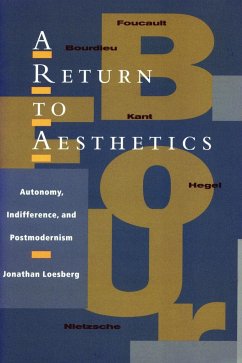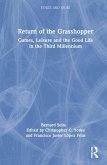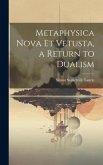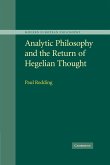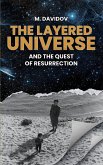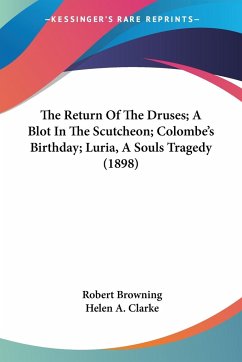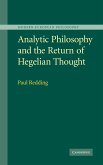A Return to Aesthetics confronts postmodernism's rejection of aesthetics by showing that this critique rests on central concepts of classical aesthetic theory, namely autonomous form, disinterest, and symbolic discourse. The author argues for the value of these concepts by recovering them through a historical reinterpretation of their meaning prior to their distortion by twentieth-century formalism. Loesberg then applies these concepts to a discussion of two of the most significant critics of the ideology of Enlightenment, Foucault and Bourdieu. He argues that understanding the role of aesthetics in the postmodern critique of Enlightenment will get us out of the intellectual impasse wherein numbingly repeated attacks upon postmodernism as self-contradictory match numbingly repeated defenses. Construing postmodern critiques as examples of aesthetic reseeing gives us a new understanding of the postmodern critique of the Enlightenment.
Bitte wählen Sie Ihr Anliegen aus.
Rechnungen
Retourenschein anfordern
Bestellstatus
Storno

